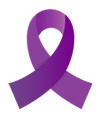Anorexia
Anorexia
Anorexia Nervosa is a type of self-starvation and a very serious psychiatric disorder with elevated mortality and risk of long-term medical consequences. Affected people continue to view themselves as needing to lose weight or fear gaining weight despite being very underweight.

Signs and symptoms may include:
- Rapid weight loss
- Obsessive preoccupation with food, calories and the desire to lose weight
- Excessive dissatisfaction with body shape and weight
- A decrease in variety and amount of food eaten
- Skipping meals and avoiding eating with others
- Excessive exercise
- Self-induced vomiting or chewing and spitting out food
- Abuse of laxatives, diuretics or diet pills
- Menstrual irregularities
- Other serious health consequences can include depressed mood, fractures and heart problems.
People tend to think they’re overweight when they’re actually very thin. They may eat fewer than 1,000 calories a day, exercise excessively, and vomit, use laxatives, take diuretics, or give themselves enemas as they continually attempt to lose more weight.
Statistics:
Approximately 1 percent of American women may have anorexia, and that could actually be a conservative estimate. Anorexia can affect men, children, and the elderly, but the majority of those who have it are adolescent girls or young women.
People with anorexia nervosa tend to:
- Maintain a weight that’s more than 15 percent lower than a normal body weight
- Have an intense fear of gaining pounds
- Have a distorted image of their bodies
- Deny that they have an illness
- Among women, stop menstruating for at least three months in a row
- Anorexics may also have rituals associated with eating, like cutting their food into small pieces, refusing to eat in front of other people, or cooking big meals for others while not eating themselves.
Physical appearance
As a result of the eating disorder disease, people with anorexia may have a low body temperature, brittle bones and nails, dry and yellow skin, and fine hair on the body. Ultimately, anorexia can cause low blood pressure and a low heart rate, and lead to an irregular heart rhythm or heart failure. The disease can also affect the kidneys and brain. People with anorexia have even starved to death.
For more Eating Disorder Hope.
Here is Eatin Disorder – Defined
Recent Posts
- Signs Symptoms of Anorexia Nervosa
- Statistics About Anorexia Nervosa
- Facts About Anorexia Nervosa
- What Is Anorexia Nervosa Definition
- Causes of Anorexia Nervosa
- Binge Eating Disorder – What Is It?
- Bulimia Nervosa – Eating Disorder Facts
- General Information About Anorexia Nervosa
- Causes of Eating Disorders
- National Eating Disorder Awareness Week – 2016
- Project HEAL
- Eating Disorder Not Otherwise Specified (EDNOS)
- War on Women’s Bodies
- Eating & Weight Disorders
- Signs & Symptoms of Eating Disorders
- What is an Eating Disorder?
- National Eating Disorder Awareness Week – 2015
- Statistics of Those Who Suffer
- Body Image & Eating Disorders
- 60 Minutes Australia – Anorexia Story
| M | T | W | T | F | S | S |
|---|---|---|---|---|---|---|
| 1 | ||||||
| 2 | 3 | 4 | 5 | 6 | 7 | 8 |
| 9 | 10 | 11 | 12 | 13 | 14 | 15 |
| 16 | 17 | 18 | 19 | 20 | 21 | 22 |
| 23 | 24 | 25 | 26 | 27 | 28 | 29 |
| 30 | ||||||

